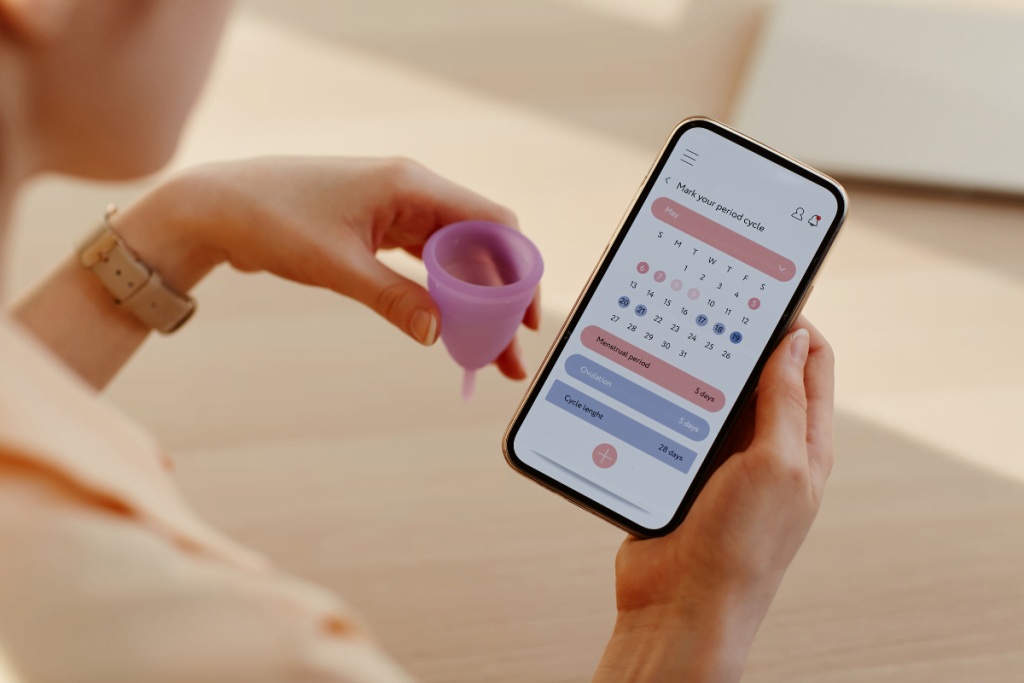Clinics often field practical questions about long-acting contraception that does not require daily adherence. This guide explains what is depo provera in clinic-facing terms, with a focus on mechanism, expected bleeding changes, and operational considerations. It is written for licensed healthcare teams who counsel, administer, document, and stock injectable contraceptives. The goal is consistent workflows and clearer expectations, not prescriptive clinical direction.
Depo-Provera is commonly discussed as “the depo shot.” Patients may also ask about menstrual suppression (period stopping), weight changes, and return to fertility after discontinuation. Your team benefits from a shared script and a consistent set of screening, documentation, and follow-up steps.
Key Takeaways
- Confirm indication and screening basics per label.
- Set expectations for irregular bleeding early.
- Document product, lot, site, and counseling topics.
- Plan workflows for follow-up timing and missed doses.
- Use comparator counseling across implants and IUDs.
what is depo provera: Clinic Context and Use
Depo-Provera is a branded injectable progestin (progesterone-like hormone) contraceptive. In practice, it fits patients who prefer a long-acting method that is discreet and clinic-administered. It can also be considered when adherence to daily or coitally dependent methods is a concern. The mechanism is primarily ovulation suppression, with additional effects on cervical mucus and endometrium.
From an operations perspective, this method is “visit-based.” Your clinic controls administration, documentation, and scheduling. That can improve reliability for some patients, but it also creates dependency on appointment access and reminder systems. It helps to align clinical counseling with front-desk scheduling protocols.
Why it matters: Clear expectations reduce avoidable discontinuation driven by bleeding surprises.
Patients may ask, “what is Depo-Provera used for” in plain language. A concise answer helps: it is a hormonal contraceptive injection used to prevent pregnancy. Some teams also discuss cycle control or menstrual suppression as a patient-centered goal, while clarifying that bleeding changes can be unpredictable early on.
MedWholesaleSupplies restricts access to credentialed healthcare professionals and licensed clinics.
For related background that frames injectables alongside other methods, see Understanding Hormonal Contraceptive Injections. When your team needs to reference a specific presentation during inventory review, you can also cross-check the listing for Depo-Provera 150 mg/1 mL Prefilled Syringe.
Depo-Provera Injection: Timing, Technique, and Injection Site
Patients tend to search for “when to take Depo-Provera injection” and “how soon does Depo-Provera start working.” Those questions have label-dependent answers that vary by clinical context. Timing can depend on cycle day, postpartum status, and prior contraceptive use. Most clinics standardize intake questions and rely on the official label and internal protocols for timing windows and any need for back-up contraception.
Operationally, the most common failure points are scheduling gaps and incomplete screening documentation. Your workflow should define who verifies timing eligibility, who orders pregnancy testing when indicated, and how missed-visit rescheduling is handled. Consistency matters more than speed.
Injection site and technique basics
Teams often receive questions about the depo-provera injection site, especially when patients report soreness or worry about nerve injury. For intramuscular products, common sites include larger muscle groups such as the deltoid or gluteal region, depending on clinic protocol and patient factors. Document the site, laterality, needle selection considerations, and any immediate reaction observed. If your clinic uses multiple formulations (for example, intramuscular vs subcutaneous products in your formulary), keep storage, labeling, and administration steps clearly separated to avoid selection errors.
Pitfalls that create avoidable callbacks
- Unclear timing window + no backup plan noted.
- Missing lot or expiration in the chart.
- Injection site not recorded or inconsistent.
- No documentation of bleeding expectation counseling.
- Follow-up interval not placed on schedule.
In day-to-day practice, what is depo provera most often confused with is “any birth control shot.” Make sure staff can name the product, the route, and the charting steps without guessing.
Bleeding Changes, Amenorrhea, and Pregnancy Considerations
Bleeding pattern changes drive many discontinuations. Patients may search “does depo provera stop periods” or “how soon does the depo shot stop your period.” A helpful framing is that amenorrhea (no bleeding) can occur over time, but it is not guaranteed, and irregular or prolonged bleeding can occur, especially early. It also helps to say plainly that injection methods do not usually stop periods immediately.
When patients ask “how to stop bleeding while on depo shot,” clinics should treat the question as both a counseling and a safety screen. Start with basics: confirm adherence to visit timing, assess for pregnancy risk when relevant, and evaluate for other causes of abnormal uterine bleeding (for example, infection, cervical pathology, or structural etiologies) based on your usual standards of care. Management options vary and may include short-term medical treatments at clinician discretion, but protocols differ across practices.
Inventory is sourced through distributor partners that undergo routine vetting.
Another high-stakes question is “what happens if you get pregnant on depo-provera.” While pregnancy is uncommon with correct use, clinics should have a clear escalation pathway. If pregnancy is suspected, confirm promptly with appropriate testing and document the timing of the last injection. Then use official labeling and teratogenicity resources to guide counseling and next steps. Avoid informal reassurance or speculation in portal messages.
For additional context on longer-horizon counseling topics, see Depo-Provera Long-Term Use Side Effects. For emergency contraception comparisons that sometimes come up during missed-visit counseling, Ella Vs Other Emergency Contraceptives can be a useful internal refresher.
Contraindications and Side Effects Across the Lifecycle
Clinics need a repeatable way to address depo-provera side effects without overpromising. Commonly discussed issues include irregular bleeding, mood changes, acne, headaches, and weight change. Some patients also ask about bone health with longer use. The degree and clinical relevance vary widely, so keep counseling factual and individualized.
Use “contraindications” language carefully and anchor it to the official label. In general, screening should consider known or suspected pregnancy, unexplained vaginal bleeding, hormone-sensitive cancers such as breast cancer, significant liver disease, and prior hypersensitivity to components. Your intake template should prompt clinicians to confirm contraindications and key precautions, and to document that review.
Patients often ask about “depo-provera age limit” and “depo-provera weight limit.” There is not a single universal cutoff that fits every jurisdiction or guideline. Instead, frame these as patient-factor considerations. Adolescents may raise bone-mineral-density monitoring discussions, and higher BMI may affect injection technique decisions such as needle length and site choice. Align the counseling script with your local standards and the product label.
Depo-Provera “banned” narratives appear online and can undermine trust. In many settings, the product remains approved and available, but regulatory status can differ by country and can change over time. Treat “banned” questions as a prompt to review current regulator communications and your formulary decisions, rather than debating social media claims.
In the admin area, use one shared adverse-effect message guide. It should define which symptoms require same-day clinical review versus routine follow-up. That reduces inconsistent advice across phone, portal, and triage staff. It also supports risk documentation when patients report severe symptoms.
In this section, what is depo provera most important for staff to remember is that counseling topics change over time. Early visits focus on bleeding expectations and visit scheduling. Later visits often focus on longer-term tolerability and whether the method still fits patient goals.
Stopping the Shot: What to Expect After Discontinuation
Discontinuation prompts a predictable set of questions: “depo-provera side effects after stopping,” “first period after stopping depo provera,” and “signs of period after depo.” The central point is variability. Some patients resume bleeding relatively soon, while others have a delayed return of menses. Timing depends on individual physiology and the time since the last injection.
From a clinic workflow standpoint, create a “stop or switch” pathway that includes documentation of the last administration date, current pregnancy risk, and the patient’s next intended method. If the patient is switching to another contraceptive, ensure your team coordinates timing and any bridging instructions per clinician direction. If the patient is trying to conceive, document that intent and provide clinician-led counseling on what to monitor.
Also anticipate questions about “depo-provera side effects long-term” versus symptoms that appear after the last dose. Some effects may resolve as hormone levels decline, while others may reflect unrelated conditions that surface once cycles return. Encourage follow-up when bleeding is heavy, prolonged, or associated with pain or systemic symptoms, using your standard triage protocols.
For teams who counsel across methods, it helps to maintain ready access to alternatives your clinic may already place or dispense, such as Nexplanon 68 mg Implant and Mirena 52 mg IUD. Keep these as clinical comparators, not default “upsells.”
When patients return after stopping, normalize the follow-up conversation. Ask about goals, bleeding, and new medications. Then document a plan for reassessment.
Clinic Workflow Checklist for Injectable Contraception
Injectable contraception touches multiple teams: intake, clinician, pharmacy/procurement, billing, and clinical documentation. A simple checklist reduces errors and improves continuity across staff turnover. It also makes it easier to audit charts if a patient reports an adverse event or if an insurer requests documentation.
Quick tip: Use one standardized template for injection documentation across all locations.
Clinic workflow snapshot (high level)
- Verify eligibility and timing per protocol.
- Confirm contraindication screen was completed.
- Prepare product and check expiration date.
- Administer and record route and injection site.
- Observe briefly, then document patient response.
- Schedule next visit interval per label.
- Update problem list and counseling notes.
Access is typically limited to licensed healthcare settings for prescription injectables. MedWholesaleSupplies supports clinics by supplying authentic, brand-name products through vetted distribution channels.
How to compare options (quick operational table)
| Method type | Clinic workload | Common patient concerns | Typical documentation focus |
|---|---|---|---|
| Injection (progestin) | Recurring visits; scheduling critical | Bleeding changes; weight; timing | Lot/exp; site; counseling; follow-up |
| Implant | Procedure visit + removal planning | Bleeding changes; insertion discomfort | Procedure note; device identifiers; aftercare |
| Hormonal IUD | Procedure visit; supplies and instruments | Cramping; bleeding; placement concerns | Sounding/placement details; strings; lot/exp |
| Copper IUD | Procedure visit; instrument readiness | Heavier menses; cramping | Placement details; counseling; follow-up plan |
When your clinic needs procedure-adjacent tools, browsing a hub like Gynecology Tool can help standardize room setup. For copper IUD examples that may be on your formulary, see T-Safe Cu 380A IUD. For implant counseling support and patient-friendly framing, Nexplanon Implant Guide may help align staff language.
In operations meetings, what is depo provera most useful for is clarifying “who owns the next step.” Assign responsibility for reminders, missed-visit follow-up, and documentation checks. Then measure no-show rates and chart completeness over time.
Authoritative Sources
Use these sources to confirm labeling details, timing windows, and eligibility frameworks:
- FDA Drugs@FDA database for official prescribing information
- CDC contraception guidance and U.S. eligibility resources
For clinic teams, what is depo provera best handled as is a standardized service: consistent screening, consistent documentation, and consistent expectations about bleeding changes.
This content is for informational purposes only and is not a substitute for professional medical advice.






